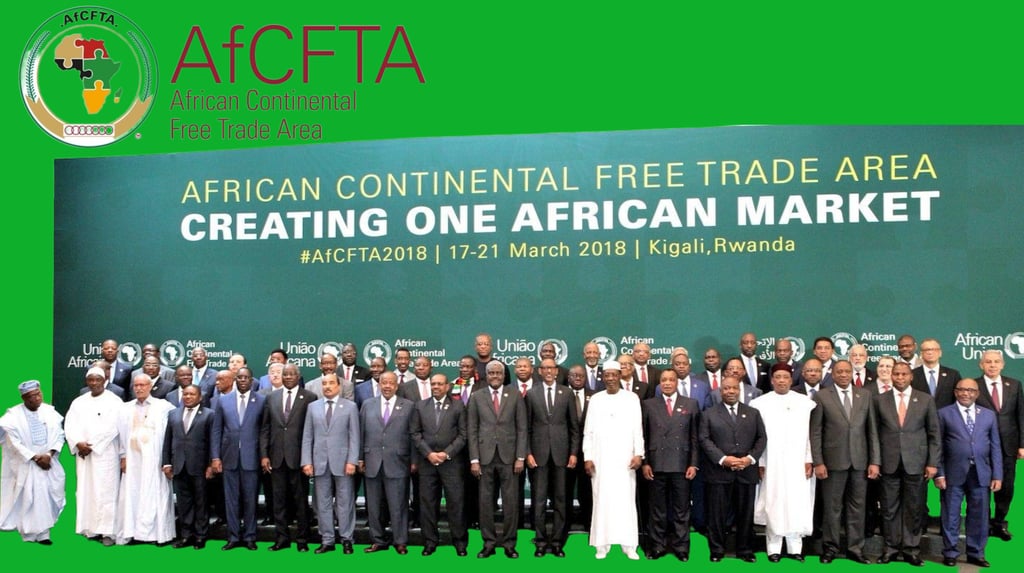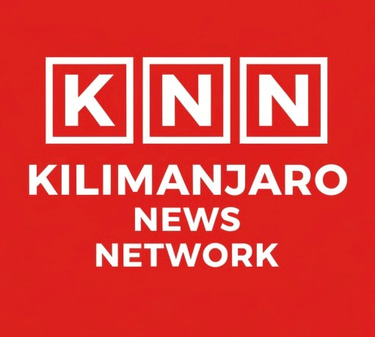Can 1.3 Billion Africans Become One Market?
Imagine a continent where borders are erased, replaced by bustling trade routes humming with opportunity. Where "Made in Africa" isn't just a label, but a global force. This isn't a futuristic vision, it's the audacious gamble known as the African Continental Free Trade Area, or AfCFTA. This weekend, the fate of this revolutionary agreement hangs in the balance as African leaders gather in Addis Ababa. Can they overcome the challenges and unlock the potential of a billion-strong market? The answer could reshape the global landscape, and tonight, we go behind the scenes.
2/18/20242 min read


Can Africa's New Trade Agreement Revolutionise Its Economy?
Imagine a vibrant marketplace bustling with activity, where goods flow freely across borders, fuelled by the collective economic might of 1.3 billion people. This isn't a utopian dream, but the ambitious vision behind the African Continental Free Trade Area (AfCFTA). This weekend, African leaders converge in Addis Ababa, Ethiopia, to discuss the progress of this ground-breaking agreement, a potential game-changer for the continent's economic future.
Breaking the Walls, Building Bridges:
For decades, African countries often traded more with nations outside the continent than with each other. This self-imposed economic isolation stunted growth and created unnecessary barriers. The AfCFTA aims to dismantle these walls, merging 55 economies into a single, dynamic market. Think of it as a giant "Made in Africa" zone, empowering cross-border investments, eliminating trade barriers, and unlocking a treasure trove of economic potential.
The Stakes are High:
Currently, intra-African trade languishes at a mere 14%, compared to the bustling 55% in Asia. This disparity translates to missed opportunities and stifled growth. The AfCFTA's goal? To unlock a potential $450 billion in additional revenue by 2035, lifting millions out of poverty and propelling Africa onto the global trade stage. Imagine thriving new industries, bustling trade routes, and a continent finally claiming its rightful place in the economic arena.
Navigating the Roadblocks:
It's not a smooth journey. Implementing the agreement necessitates tackling complex regulations, outdated infrastructure, and visa restrictions that impede seamless trade. Critics also highlight the potential exclusion of informal trade, a vital lifeline for many African economies. These challenges demand proactive solutions, and this weekend's summit holds immense significance.
Charting the Course:
Leaders in Addis Ababa have their hands full. Key protocols on intellectual property, women's inclusion, and digital trade require discussion and approval. Streamlining regulations, investing in infrastructure, and empowering women entrepreneurs are critical steps on the path to success.
A Turning Point for Africa:
The AfCFTA is not just an economic agreement; it's a beacon of hope and unity for a continent yearning to unlock its full potential. Its success hinges on addressing existing challenges and harnessing the collective will of its member nations. This weekend marks a crucial turning point, as African leaders navigate the path towards a truly integrated, prosperous Africa. The world watches with anticipation, for the ripples of this agreement could reshape the global economic landscape.
Will the AfCFTA be the key that unlocks Africa's economic potential? Only time will tell, but the journey begins now, in the heart of Addis Ababa, where the future of a continent hangs in the balance.
